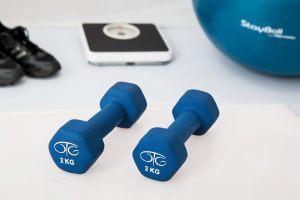As we traverse the meandering journey of life, it is a known fact that health is our most precious asset. But what happens when we encounter long-term disability? The disability itself may bring a series of challenges, yet it doesn’t signify the end of a fulfilling, healthy life. Instead, it marks the beginning of a new journey that can be both empowering and enlightening.
Here we’ll share tips and strategies for maintaining a healthy lifestyle, despite living with a long-term disability.

Understand Your Rights And Responsibilities
The first step to maintaining a healthy lifestyle with long-term disability is understanding your rights and responsibilities. If you are unable to work because of your disability, consider filing a long term disability insurance claim.
Navigating through the claim process can be daunting, but it is crucial for securing benefits that can help with medical expenses and basic life needs.
Moreover, understanding your rights can help maintain your mental health, reducing stress and anxiety surrounding financial constraints. Work closely with your healthcare providers and a disability lawyer to ensure you fully understand your entitlements and obligations.
Focus On Nutrition
Our bodies, irrespective of disability, need a balanced diet to function optimally.
Maintaining a balanced diet is an essential part of a healthy lifestyle. Collaborate with a dietitian to create a meal plan tailored to your specific needs, taking into account your disability. Regularly consuming nutritious food can not only support your physical health but also improve mental well-being.
Physical Activity

Despite physical limitations, many individuals with disabilities can and should participate in appropriate physical activities. Regular exercise can boost energy levels, improve mood, and strengthen the immune system. Collaborate with a physical therapist to design an exercise routine that caters to your abilities and health goals.
Social Engagement
Human beings are social creatures. Engaging in social activities can significantly improve mental health and overall well-being. Even if your mobility is limited, there are various ways to maintain social interactions such as using technology for video calls or participating in online forums or groups. Also, try to talk to people physically, doing so will help to improve your social health.
Regular Medical Check-Ups
Regular health checks are vital for early detection and management of potential health complications. Regular visits to your doctor help to ensure that your health is monitored and any changes in your condition are addressed promptly.
Mental Health Care
Living with a long-term disability can sometimes lead to feelings of isolation, stress, or depression. It’s essential to prioritize your mental health alongside your physical health. Seek support from professionals such as psychologists or counselors, and consider mindfulness activities like meditation or yoga.
Assistive Technology
With advancements in technology, there are various assistive devices that can help manage your disability and enhance the quality of life. Whether it’s mobility aids, communication devices, or home automation, these technologies can increase your independence and reduce reliance on others.
Self-Care
Lastly, never underestimate the power of self-care. Take time out each day to do something you enjoy. Whether it’s reading a book, listening to music, or gardening, these activities can provide a sense of accomplishment, boost your mood, and contribute to your overall well-being.
Conclusion
Long-term disability may pose a unique set of challenges, but it doesn’t mean a healthy lifestyle is out of reach. By understanding your rights, focusing on nutrition, maintaining physical activity, engaging socially, attending regular medical check-ups, caring for your mental health, utilizing assistive technology, and practicing self-care, you can lead a fulfilling, healthy life.
Remember, your disability defines only a part of you, not your entirety. In the end, the will to lead a healthy lifestyle often comes from within. So harness that will, and remember, you’re more capable than you think.







